Adding Wings To The Talent Of 300 Artists & Counting – This Startup Is Building The “Uber For Murals”
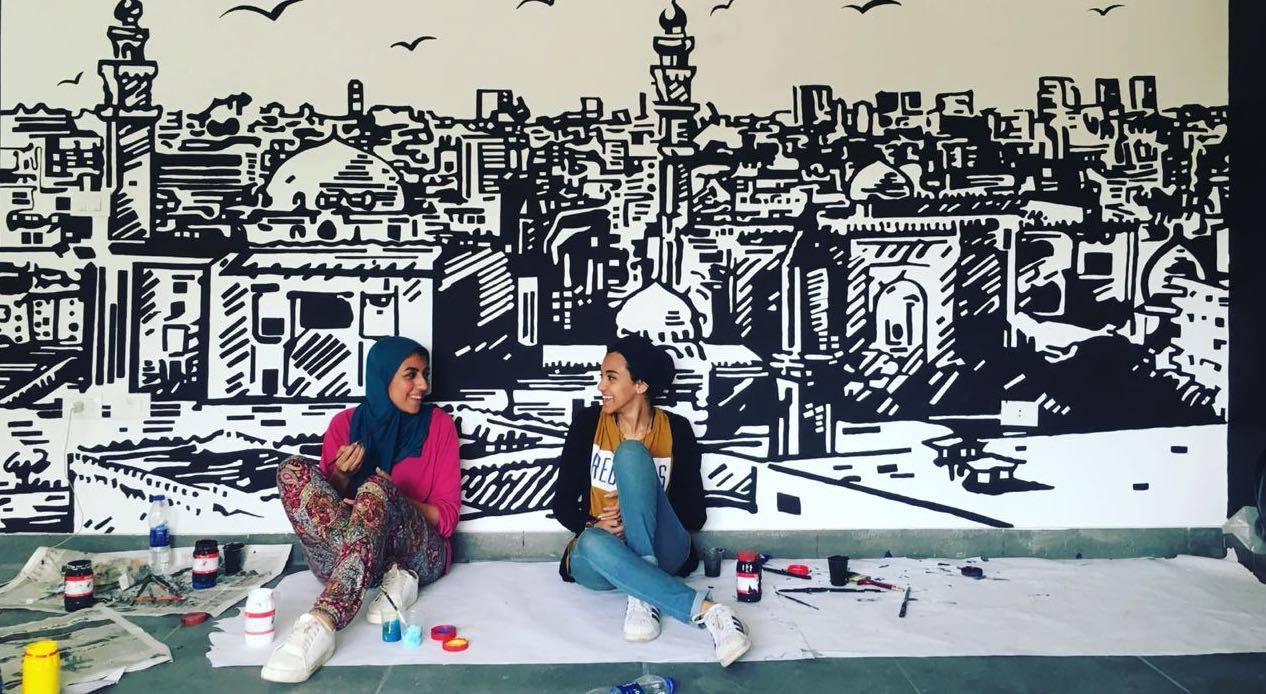
Jidar is an online platform that connects wall artists with businesses looking to spice up their brand. The company acts as an agency for creatives and sets them up with well-paying gigs throughout Egypt. And it is the brainchild of three youngsters.
As opportunities for formal employment and the usual nine-to-five continue to dwindle in parts of the developing world, the gig economy has only grown by leaps and bounds. From skilled individuals putting in work on multiple platforms on a freelance basis to persons handling a few tasks here and there, it’s grown into quite the industry, encompassing various sectors.
But one of the major drawbacks of this new economy has been its apparent lack of structure and/or regulation — something that often leaves the average “gig economy employee” in danger of being shortchanged, unprotected, underappreciated or worse still, exploited.
Hence, the need to set up umbrella organisations to protect the interests of such persons who already have to do without the perks of formal employment as it is, and probably don’t even have any idea when the next gig will actually come, or if it will at all.
Visual artwork may seem like one of the less popular forms of gig work — some may even describe it as rather niche — but in places like Egypt where wall art, especially, has been something of a way of life since the time of the Pharaohs, it’s quite the prospect. And that’s probably why a trio of young co-founders are now doing the most to preserve this culture, as well as uphold the interests of the ones who work the magic with their brush strokes.

Sara Gaafar (22), Farah Emara (22), and Tasneem Amr (23) established Jidar in 2017 and the platform is fast-becoming some sort of “Uber or Deliveroo for wall artists” — it’s probably as close to ordering wall art as one can get. Jidar connects wall artists to businesses and individuals who want to adorn their walls with wall art and murals.
As seen from the eyes of the co-founders, the idea is to “turn every wall into a canvas since walls are, in fact, the most practical kinds of canvas”. Through its community of artists, Jidar offers its clients a variety of art styles guaranteed to suit their different tastes and needs.
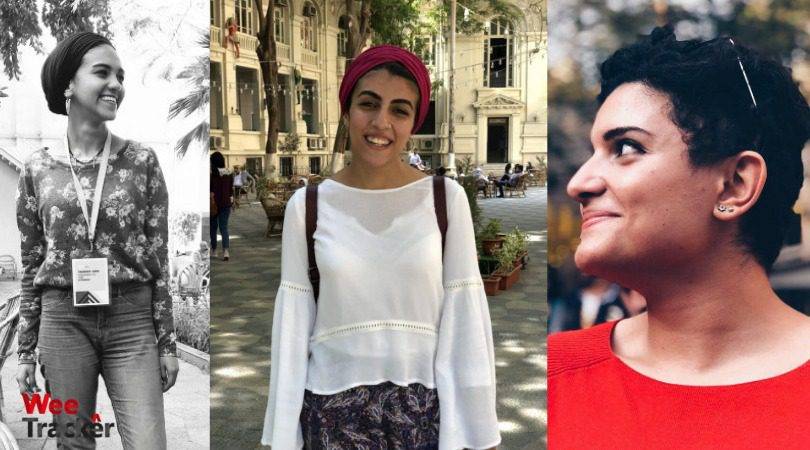
Since coming into existence, the company has literally left a mark on the walls of various corporate offices, restaurants, coworking spaces, and homes across Egypt, thanks in no small part to its burgeoning roster of gifted artists and skilled designers.
According to the founders, Jidar is a collective that harnesses the power of art to transform interior spaces into works of art. The company achieves this by enlisting artists to paint customized murals and redesign interiors for various businesses and homes.

Jidar has positioned itself as a key facilitator in helping artists secure well-paying work. It seeks out clients who are on the lookout for innovative ways to amplify their brand and links them up with artists in the company’s network best-suited to deliver the right artistic solution while putting an appropriate price tag on the work that is to be done and earning commissions. The business could be seen as a way of bringing art and innovation into the daily experience of society while providing artists with an opportunity to become active contributors to the corporate sector.
It all began when Farah and Tasneem, both teenagers at the time, linked up with Sara to set up a non-profit organisation to empower young artists by transforming their talents into community service projects and pushing them to their maximum creative potential by showcasing their work at different events.
This was the year 2014 and they called this project Artkhana. Sara was a student of Mass Communication at Misr International University at the time and both Farah and Tasneem were just starting out as students of the Faculty of Fine Arts. Their passion for the arts is what they all had in common.
With Artkhana, the trio worked with over 400 artists on over 1,500 art pieces, paintings, crafts, photographs, original songs, and even published four other books. Artkhana is still operational to this day, albeit under different management.
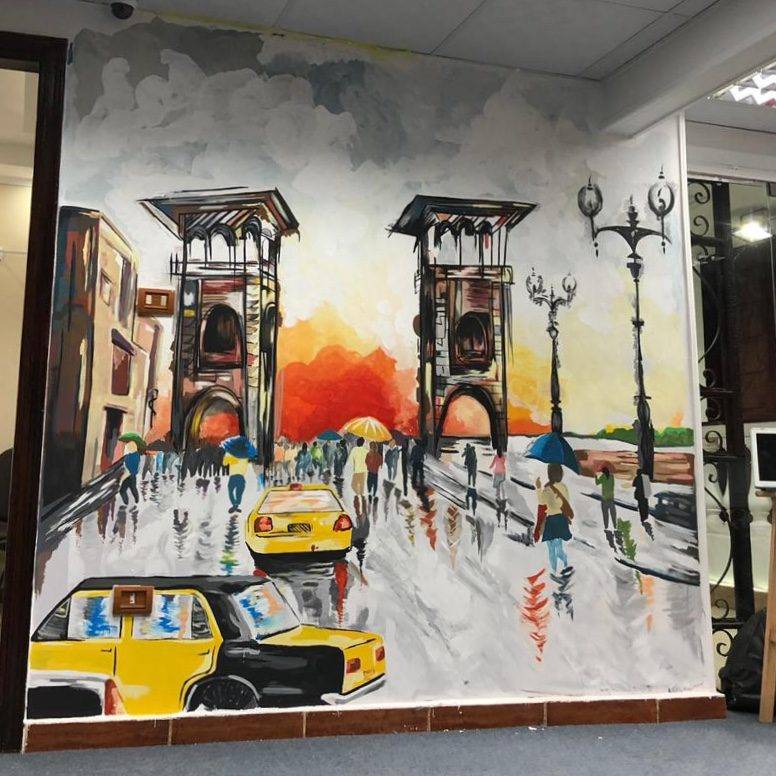
Artkhana exposed the trio to some of the shortcomings of the business of arts — it became apparent there was a gap between the business world and the art community. In other words, there just wasn’t any organised platforms for artists to use their skills to telling effect in the corporate world. And to them, it’s not as if those two areas were mutually-exclusive.
Through Artkhana, the trio had been in touch with artists for up to five years and as talent hunters, they were well aware of the potential available. It happened that a gig came from a friend who wanted some murals to be done on the walls of his office, and he reached out to the Artkhana founding team. That was when they began to realize that there was a need for new and innovative ways for businesses in the corporate and startup sector to prop up their brand.
And that was how the inspiration for Jidar came. The idea was to redirect Egyptian talents into different markets, activating the identified unexplored potential. Since they had already done similar with Arkhana on a non-profit basis, it was kind of a no-brainer that they launched a formal business that would enable artists to actually profit off of their talents. Thus Jidar was born.
The platform acts as an agent for a group of 300 artists and designers. Sara, Farah, and Tasneem have managed to put together a very diverse group to become part of a network of artistic talent and they have also established an extensive methodology that ensures the delivery of timely, clean, price-efficient and organized process-to-product services.
Jidar currently focuses on murals, and its market strategy is centered around launching at a very competitive price in a market that is still relatively quiet so as to build a brand with a significant market share.
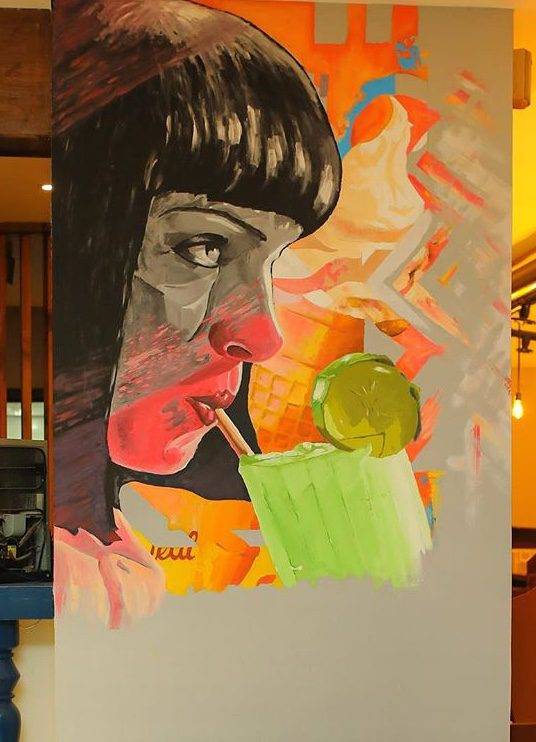
“Jidar is a startup connecting wall owners with visual artists from all over the region, providing tailored, functional, and branded wall art services that energize physical environments, reserve cultures and amplify brands,” Farah tells WeeTracker.
“Our network of artists is constantly growing, providing diverse styles, techniques, and rates. We are constantly innovating our methodology, offering a trusted partner to smoothly access a spectrum of relevant art solutions.”
She adds; “Jidar serves artists by providing them different job opportunities so as to be able to monetize their talents and enjoy doing the things they love without worrying about logistics and technicalities. They are the creatives and we are their agents.”
Jidar has over 100 artists directly within its network and it has been able to provide up to 60 of them with between 1 to 4 gigs. In under two years of operation, the company has worked with up to 70 clients.
“Different client bases are using the service differently,” says Emara. “Whereas offices use murals as an HR tool and to optimize employee performance, advertising agencies use it as part of the art direction and storytelling. Marketers use it as an ‘Instagramable’ tool, schools for educational purposes, and homes for decoration.”
According to Farah, there exists a couple of teams that offer a similar product in Egypt, but none of them can be viewed as direct competitors. While these are teams of artists that handle tasks together, none of them is a connecting agency like Jidar and none follows a well-defined methodology as the company does. This places Jidar head and shoulders above its peers and gives it an advantage in the markets that it is looking to explore.
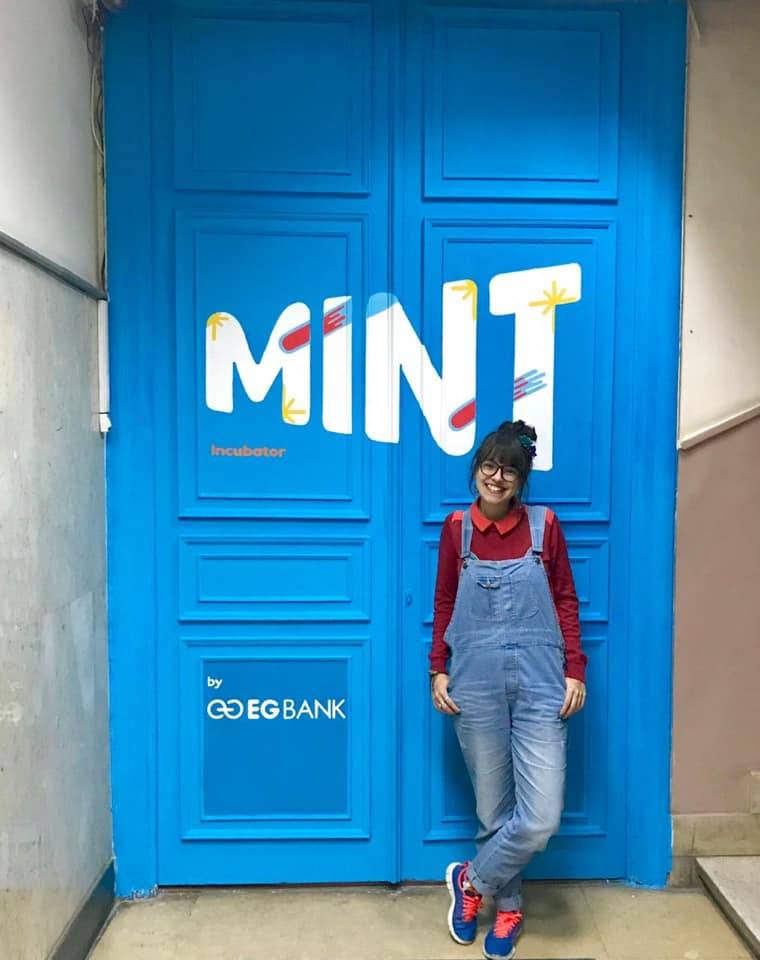
Jidar was one of ten startups that graduated from EG Bank’s MINT Incubator sometime last year, where both Sara and Farah pitched for seed funding to the tune of USD 55 K. In recognition of her work, Farah was named an Anzisha fellow in 2018 and this was after StartupSceneME mentioned her as one of her country’s brightest entrepreneurial prospects in its list of 25 under-25 entrepreneurs who are reinventing Egypt.
The startup is one of the few in Egypt that focuses on innovation and art. Although it is addressing a yet untapped and rather tricky area, the goal is to strive towards solving a problem that is capable of taking many industries by storm.